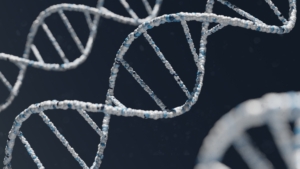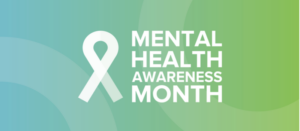The Connection Between Cannabis Use Disorder And Genetic Predisposition to Schizophrenia

The number of Americans who believe that regular marijuana use can be harmful has been steadily decreasing in recent decades and 22 US states and the District of Columbia have now legalized the recreational use of cannabis products. Self-reported use in the US increased from 9.9 percent in 2007 to 15.3 percent in 2017 with the most increase in cannabis use among high school students although they are not legally permitted to use marijuana.
“Excessive cannabis use is known to associate with psychotic-like experiences, schizophrenia symptoms, cognitive impairment, and emotional distress,” reported Sanchari Sinha Dutta, Ph.D., in April on News Medical. “Studies have shown that the administration of psychoactive constituents of cannabis can induce acute psychotic-like experiences, including unusual thoughts, paranoia, disorganized thinking, and in some rare cases, auditory and visual hallucinations.”
A new study published in the journal Schizophrenia Bulletin shows that genetic risk factors for schizophrenia can increase the possibility of experiencing cannabis-related psychotic symptoms in regular marijuana users. “Among individuals who regularly use cannabis, genetic liability for schizophrenia—even in those without clinical features—may increase the likelihood of reporting unusual experiences related to cannabis use,” the authors wrote. “Cannabis use disorder (CUD) was prevalent in this analytic sample (70 percent), with 40 percent classified as mild, 25 percent as moderate, and 35 percent as severe. Polygenic risk for schizophrenia was positively associated with cannabis-related paranoia, feeling depressed or anhedonia, social withdrawal, and cognitive difficulties, even when controlling for duration of daily cannabis use, CUD, and age at first cannabis use.”
The average age of first-time marijuana use was sixteen years. About three-quarters of the enrolled participants reported using other illicit drugs.
“The study reveals that regular cannabis users with higher pre-existing genetic susceptibility to schizophrenia are at higher risk of experiencing cannabis-related psychotic experiences, including hallucination, paranoia, depression, cognitive difficulties, and social withdrawal,” Dr. Dutta wrote in the News Medical article. “Moreover, excessive and early-onset cannabis users are more likely to report unusual cannabis-related experiences. As mentioned by the scientists, the study involved ascertained individuals with a high prevalence of cannabis use disorder and use of other illicit drugs.”
Cannabis use and schizophrenia seem to have a close relationship, wrote Patel, Khan, et al. in their 2020 study on the association between schizophrenia and cannabis use. “Schizophrenia and psychosis walk hand in hand alongside with cannabis use,” they wrote. “When a healthy person uses cannabis, he experiences relaxation, euphoria, and a decrease in anxiety and boredom. However, they might also have some undesirable effects like paranoia, grandiosity, agitation, hallucination, cognitive impairment, disorganized thinking and behavior, and depersonalization. People predisposed to the development of psychotic illness are more vulnerable to the psychotomimetic effects of cannabis, more specifically, THC” (the primary psychoactive component of cannabis).
The research suggests that it is a bad idea to try alleviating schizophrenia symptoms with cannabis products. Patel, Khan, et al suggest that “chronic cannabis use in schizophrenic patients has a detrimental effect on brain morphology.”
Mental health conditions and substance use disorders such as CUD are frequently co-occurring because many people with addiction are primarily misusing addictive substances to self-medicate emotional pain caused by serious mental health disorders. Colorado Recovery understands the importance of coordinated and integrative treatment care and provides substance use services to all clients who require them as part of a specialized dual diagnosis track.
At Colorado Recovery, mental health treatment is focused on stabilizing illness, minimizing symptoms, improving functioning, and enhancing each patient’s social inclusion, quality of life, and sense of meaning in life.
If you have questions about our recovery model or our services to treat schizophrenia, bipolar disorder, and similar mental illnesses, call us at 720-218-4068 to discuss treatment options for you or the person you would like to help.



